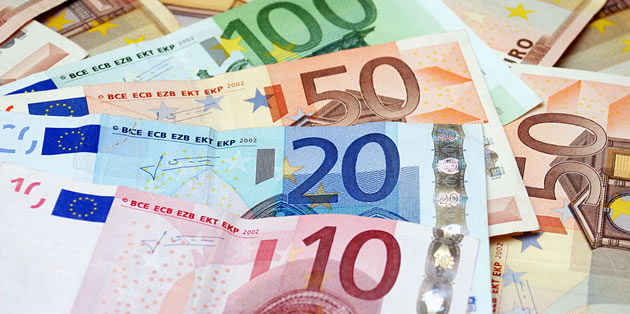The Euro to Canadian Dollar (EUR/CAD) exchange rate tumbled to its lowest level in 2-years on Thursday as rising oil prices and the decision by the Bank of Canada to leave interest rates unchanged buoyed the ‘Loonie’.
The Euro to Canadian Dollar (EUR/CAD) exchange rate slid to a 2-year low of 1.3069
Falling oil prices have inflicted pain upon the Canadian economy but thing should begin to improve over the coming months, the Bank of Canada said in its latest forecast released on Wednesday. The ‘Loonie’ was buoyed by the banks hawkish assessment and decision to leave interest rates unchanged at 0.75%.
‘Pulling all of this together, it is our view that the economic forecasts in Wednesday’s MPR…point to a central bank that is comfortable with its current monetary policy stance. Given our expectation that the economic impact of lower oil prices is mostly behind us, we expect that the Bank of Canada will keep interest rates on hold until the end of 2016,’ said Randall Bartlett, an economist at TD Bank.
Also supporting the Canadian Dollar was news that the price of crude oil, Canada’s biggest export, increased to rise above the $63 per barrel level on Thursday.
The rise added to the 5% rally seen on Wednesday and led to oil linked currencies making gains. The rise now means that oil prices are at the highest level in 2015.
‘No matter how volatile crude prices are, prices hitting the resistance are a clear sign that prices are poised for a breakout. From a technical view, we are already seeing crude oil showing bullish signals. Now, with the fundamental view also supporting technical, we become extremely bullish towards the oil market,’ said an analyst from Philips Futures.
Greece is Moving Closer to the Abyss
The Euro meanwhile declined against the majority of its most traded peers on Thursday as concerns over Greece damaged sentiment towards the single currency.
Credit Ratings agency Standard & Poor’s downgraded Greece’s credit rating from B-/B to CCC+/C as it sees the negotiations between Athens and its creditors in the Eurozone as a threat to the economy.
The Syriza led Greek government has been told that unless it submits a revised economic plan to Brussels, Eurozone finance ministers may not provide much needed bailout funds.
Greece is due to meet its creditors in the Latvian capital of Riga on April 24, but according to a number of Eurozone finance ministers the chances that a deal will be reached are slim.
The EUR/CAD currency pair is expected to experience more volatility on Friday, as Eurozone inflation and Canadian inflation and retail sales data are all due for publication.



